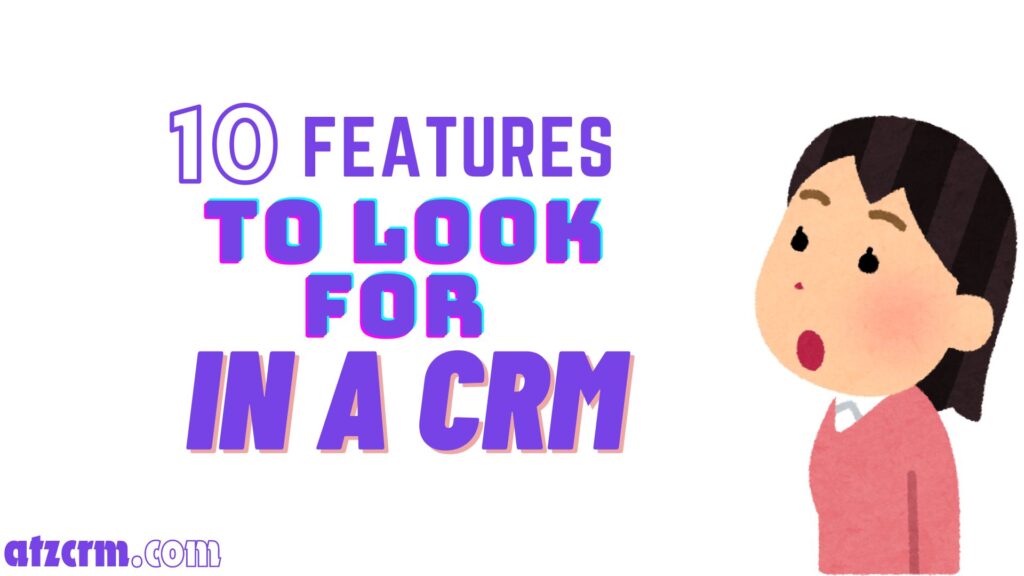Here are the 10 features to look for in a CRM for recruitment that will help you land top talent, streamline operations, and avoid common hiring headaches.
1. Candidate Relationship Management
Let’s start with the basics: candidate relationship management. A good CRM for recruitment should go beyond just collecting resumes—it should help you build and nurture relationships with candidates. Imagine having a 360-degree view of every candidate, from their application status to every interaction they’ve had with your team. Whether it’s emails, phone calls, or interviews, your CRM should track it all.
You’ll know where each candidate stands without sending a dozen “just checking in” emails. And let’s be honest, there’s nothing worse than asking a candidate about something you should already know.
Pro Tip:
Look for a CRM that offers automated reminders to follow up with candidates at critical stages.
2. Seamless Integration with Job Boards and Social Media
In the world of recruitment, job boards and social media platforms are your bread and butter. The CRM you choose should integrate seamlessly with major job boards like LinkedIn, Indeed, and Monster, as well as social platforms like Facebook and Twitter. This means you can post jobs, track applications, and even headhunt candidates without ever leaving your CRM.
Imagine having all your job posts and candidate sourcing from LinkedIn or job boards automatically synced into your system. No more manual entry, just a streamlined process that saves you time—and sanity.
3. Automated Workflow and Task Management
A well-designed CRM should be able to automate repetitive tasks, such as sending interview reminders, follow-up emails, or even status updates to clients. Consider it your personal assistant that’s always on the clock, never takes a break. You get to focus on what really matters: building relationships, assessing candidates, and making great placements.
If you find yourself still manually sending “thank you for applying” emails, it’s time to upgrade.
4. Customizable Pipelines and Dashboards
No two recruitment agencies are the same, so why settle for a one-size-fits-all CRM? Your CRM should offer customizable pipelines that allow you to tailor the process to your specific recruitment needs. Whether you’re sourcing talent, shortlisting candidates, or nurturing leads, your pipeline should reflect the stages that matter most to your team.
Customizable dashboards are equally important. Want to see how many candidates are in the interview stage? Or how many placements you’ve made this quarter? With the right CRM, you should be able to visualize all key metrics in one place.
5. Advanced Search and Filtering Capabilities
Picture this: you have a database of hundreds, if not thousands, of candidates. One of your clients suddenly needs a specific niche skillset ASAP. How can you quickly track down the right candidates? The CRM you choose should offer advanced search and filtering capabilities that allow you to pull up qualified candidates in a matter of seconds based on criteria like skills, experience, and location.
Think of this feature as your magic wand in the recruitment world—you’ll never waste hours scrolling through irrelevant resumes again.
6. Mobile Accessibility
Let’s be real, recruitment doesn’t just happen from behind a desk. Whether you’re out at a conference, in between meetings, or just stepping out for a quick coffee break, you should be able to access your CRM on the go.
A mobile-friendly CRM ensures that you can manage candidates, view client information, and even schedule interviews wherever you are. Gone are the days when you had to wait until you were back at the office to move things forward. Now you can do it all from your phone or tablet.
Pro Tip:
Look for a CRM that not only works on mobile but also offers a dedicated app with full functionality.
7. Client Management Features
Sure, the candidates are the star of the show, but you can’t forget about your clients. Your CRM should include client management features that allow you to track every interaction, project, and placement for each client. This ensures that you’re always on top of what your clients need, making you look like the recruitment superstar you are.
Even better, many CRMs offer shared portals where clients can log in, view progress, and even offer feedback on candidates.
Pro Tip:
A CRM with built-in client relationship management can prevent embarrassing mix-ups, like forgetting a client’s name on a call. (It’s okay, it happens to all of us.)
8. Reporting and Analytics
To improve your recruitment strategy, you need to understand what’s working and what isn’t. That’s where reporting and analytics come in. A good CRM for recruitment should provide detailed insights into everything from your sourcing success rate to your time-to-fill metrics.
Are candidates from LinkedIn moving faster through the pipeline? Is there a bottleneck in the interview stage? Data-driven decisions are key to optimizing your process, and a CRM with solid analytics will provide that clarity.
9. GDPR Compliance and Security Features
Privacy is a big deal, especially with evolving regulations like GDPR (General Data Protection Regulation). Your CRM must help you stay compliant by offering features like consent tracking, data anonymization, and secure candidate information storage.
When candidates trust you with their data, it’s your job to protect it. A CRM that handles security and compliance ensures you’re not unintentionally stepping on any legal landmines.
10. Collaboration Tools for Teamwork
Recruitment is rarely a one-person show. If you’re working with a team, you’ll need collaboration tools that allow you to seamlessly share notes, tasks, and updates on candidates and clients. Your CRM should support multi-user access with team-based permissions, making it easy for everyone to stay in sync.
For example, if one recruiter speaks to a candidate, they can log their notes, so the next recruiter who picks up the process knows exactly where things stand. No more duplicate emails or miscommunications. Everyone stays in the loop.
Pro Tip:
Look for CRMs that allow real-time updates and notifications. Teamwork makes the dream work!
Conclusion: Choose the Right CRM for Recruitment Success
So there you have it—10 essential features to look for in a CRM for recruitment. Whether you’re a solo recruiter or managing a full agency, the right CRM can help you automate mundane tasks, stay organized, and build stronger relationships with both candidates and clients.
Ready to streamline your recruitment process? Take a closer look at ATZ CRM, an all-in-one recruitment tool that ticks all the boxes and more. From advanced search capabilities to seamless integration with job boards, ATZ CRM offers everything you need to recruit like a pro.
Give it a try and see your hiring efficiency soar!


